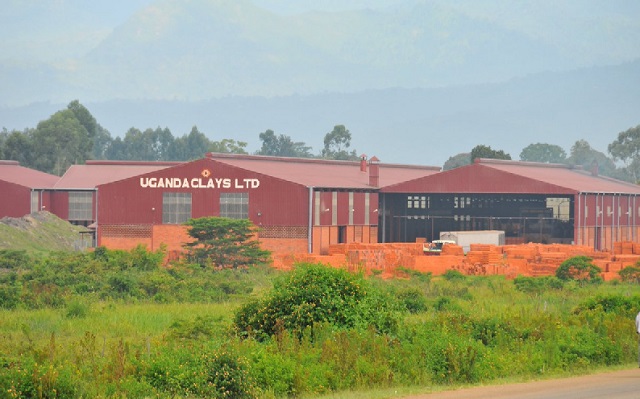
Competition from other clay products makers threatens its further increase in sales
Kampala, Uganda | ISAAC KHISA | Clay products maker, Uganda Clays Limited (UCL), has recorded a steady profit growth for the second year running citing increased marketing and the decision by the majority shareholder, National Social Security Fund, to stop collecting interest on the loans advanced.
NSSF which owns 32.5% of UCL extended an Shs11 billion loan to the company in 2010 to purchase machinery for increasing kiln output at Kamonkoli factory and purchase spares for the Kajjansi factory.
The loan which attracted a 13-15% annual interest has swollen to Shs23.2 billion and become a strangle-hold on the ailing company.
Considering UCL’s difficulties, NSSF decided to forego further interest on the loan and plans to convert its debts into equity.
As a consequence, the company’s latest annual performance shows that the company recorded a 4.5 % growth in revenue to Shs27.2billion in 2017, up from Shs26billion in 2016 and Shs24.11billion in 2015.
The company’s net profit grew to Shs2.395 billion, up from Shs2.375billion and Shs Shs1.207billion loss during the same period under review.
However, the company’s expenses grew by 21.4% to Shs7.83bn in 2017, up from Shs6.45bn in 2016 and Shs 7.76billion in 2015 due to increase in administration expenses.
George Inholo, the managing director of UCL said the slow growth in net profit and the surge in overhead costs is attributed to the general increase in prices in the economy, specifically major inputs such as steel, fuel and lubricants and imported spares.
The price of fuel, for instance, of premium petrol increased from an average of US$486.5 per metric tonne in June 2017 to US$644 per metric tonne on average as at the end of January 2018 on the international market, representing a 32.4% rise.
Similarly, the price of diesel has increased from US$424.81 per metric tonnes to US$ 596 per metric tonnes during the same period under review.
This comes at the time the company is currently trying to intensify marketing campaigns to stir growth sales to maintain the growth in revenues amid tightening competition from other clay products makers and steel producers.
Last year, the company opened up outlets in Arua, Lira, Gulu and Kabale, with a plan to extend deep West and in the other areas. At the same time, the company plans to consolidate its business in Kampala and Wakiso which are synonymous with high per capita income.
Listed on the Uganda Stock Exchange in 2000, UCL registered a persistent growth in profits until 2009 when it registered a Shs707 million loss from a profit of Shs2.15 billion in 2008. It blamed the shift in performance on the effects of the global financial crisis.
Its woes were worsened with the timing of the establishment of the second plant at Kamonkoli, in eastern Uganda. The plant hiked the company’s operating expenses; especially for procurement of the heavy fuel used to dry the clay, at a time when the economy was slowing down dramatically.
The plunge into red led to negative investor sentiments on the USE which led to a drop in share price from Shs60 in 2009 to Shs12 in June last year. However, it has slightly regained its value to Shs28.
The fortunes of UCL now lie majorly on the financial muscle of its main shareholders, including the
National Insurance Corporation with 17.86 %, Central Bank of Kenya Employee Pension Fund, Bank of Uganda Staff Retirement Plan, and NSSF.
Others are Kenya Power and Lighting Company, Uganda Communications Employees Contribution Plan, Kenya Airways Staff Provident Fund, Uganda Development Bank, National Social Security Fund Staff Investment Plan, Joseph and Ketrah Tukuratiire and minority shareholders.
Going forward, Inholo told The Independent earlier in an interview that the company’s focus is to grow its profit by double digit so as to give value to its shareholders.
“We are going to do innovations – we want to go into other colored or glazed kind of tiles, clay paver,” he said.
“We will embrace passion to excel in everything that we will choose to do. We will also do a lot of marketing, geographical expansions by opening up outlets which will be stocked adequately at all times,” Inholo revealed.
He said the company is also looking at setting up a builder’s academy that will bring architects, property developers, engineers and people in the real estate sector to help sharpen their knowledge about the industry and our products.
 The Independent Uganda: You get the Truth we Pay the Price
The Independent Uganda: You get the Truth we Pay the Price



